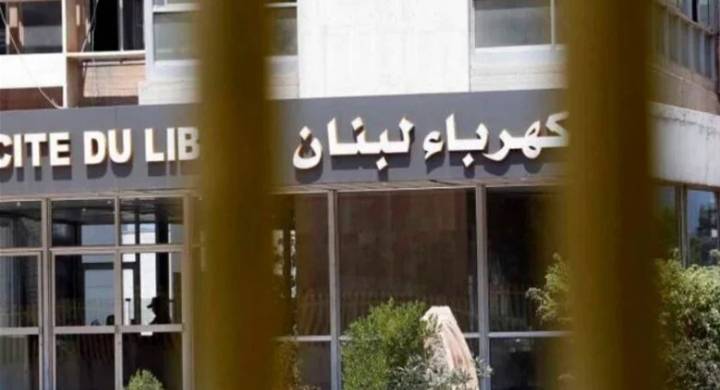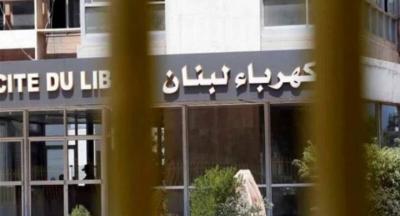The Ministry of Energy continues to cover the electricity sector with "paste" to address the decay. Traditional and innovative products keep failing, revealing an increase in waste, deepening the cavities of mismanaged funds, expanding the cracks of administrative violations, and a total lack of trust on various levels.
Two days before the meeting scheduled for the caretaker government on the 18th of this month, Minister of Energy and Water Walid Fayyad sent two letters to the Cabinet on Monday, January 16, 2023, concerning funding for the national emergency plan for the electricity sector and the fuel oil sale agreement between Iraq and Lebanon. He followed these up with a press conference to show his commitment to securing citizens' rights, energy security, and protecting public finances.
**The Secretary-General Responds to the Letters**
Formally, the Secretary-General of the Council of Ministers replied to the “mobile” draft decrees sent by Minister Fayyad, indicating they were received after distributing the agenda for the meeting scheduled for 10 AM tomorrow, January 18, 2023. In substance, the Secretary-General requested that the Minister of Energy reformulate the draft decrees regarding “funding for the national emergency plan for the electricity sector” according to the Prime Minister's Circular No. 36 dated December 5, 2022. They also requested the following regarding the “fuel oil sale agreement between the Government of the Republic of Iraq and the Government of the Lebanese Republic”:
- A statement of the value of the documentary credits that should be opened to implement the basic agreement as well as the renewed agreement.
- A clear request for approval of renewing the agreement and authorizing the minister or his appointee to sign, as a settlement after it was signed without prior authorization or approval according to the regulations.
- Providing the Cabinet with a draft law aimed at renewing the fuel oil sale agreement between the Government of the Republic of Iraq and the Government of the Lebanese Republic.
- Reformulating the two draft decrees attached to the Minister of Energy's letter: first, the conclusion of the fuel oil sale agreement between the Government of the Republic of Iraq and the Government of the Lebanese Republic. Second, referring a draft law to the House of Representatives aiming to renew the fuel oil sale agreement between the Government of the Republic of Iraq and the Lebanese Republic according to the Prime Minister's Circular No. 36 dated December 5, 2022.
Thus, the hopes launched by Fayyad during the press conference of possibly receiving 33,000 tons of Iraqi fuel by the end of February dissipated, as did his hopes of quickly obtaining a treasury advance of $306 million to start implementing the electricity emergency plan and securing a maximum of 4 to 5 hours of electricity daily at the price of 27 cents plus 20 percent per kilowatt hour calculated based on the exchange rate set by the Sayrafa platform at 38,000 L.L.
**Return to the Mobile Decrees**
The mobile decrees from the minister, through which he attempted to score two goals politically and administratively in the Cabinet, backfired, shaking his net and cutting the hope for all citizens. According to informed sources, the signing of the “Aounist” ministers who objected to holding a Cabinet meeting regarding the Minister of Energy's decrees under Article 62 of the Constitution, which grants powers of the President to the Cabinet, was “unnecessary.” All that was required was for Minister Fayyad to adhere to the regulations, attend the Cabinet meeting as the concerned minister, and approve the advance that only required the signatures of the two relevant ministers, namely the Ministers of Energy and Finance alongside the Prime Minister's signature.
**Cost of the Emergency Plan**
As for the administrative violation, what the Minister of Energy requests, particularly in the decree to implement the emergency electricity plan, does not exceed obtaining a financial advance threatened by an inability to repay it from Lebanon's electricity revenues, despite the tariff increase. The minister requested approval to grant an advance of $306 million to cover the needs for implementing the modified emergency plan in line with the capabilities of the Central Bank during the first phase. This advance is distributed as follows:
- $62.1 million to cover the purchase of 66 metric tons of gas oil.
- $48 million to cover the purchase of 28,000 metric tons of fuel oil grade B at a cost of $16.5 million, and 46,000 metric tons of fuel oil grade A at a cost of $25.5 million, along with covering increases in the documentary credit required for gas oil of about $6 million.
- $142 million to cover the remaining fuel needs of Electricite du Liban for operating production plants to complete the implementation of the modified emergency plan according to the Central Bank's decision to reduce funding from $600 to $300 million.
The minister had also requested the Prime Minister to work on securing the other $300 million promised by the Central Bank so that Electricite du Liban could achieve the main goal of the emergency plan by increasing supply to between 8 to 10 hours a day, reminding of the remaining conditions for the successful implementation of the emergency plan as stated in the relevant decision of the Board of Directors of Electricite du Liban:
- A written commitment from the Central Bank to secure funding and transfer the available funds in the account of Electricite du Liban in Lebanese pounds to cash dollars on a clear basis.
- The necessary political support to enable public administrations and institutions to pay for electricity consumption.
- The necessary security support concerning revenue collection and stopping illegal connections.
- Improving the status of Electricite du Liban employees and securing logistical capabilities for them.
**A New Working Mechanism Required**
Contrary to Minister of Energy Walid Fayyad's claim that the $306 million advance would suffice to start the emergency plan, only to later increase the tariff to cover fuel costs is “completely unfounded,” according to Dr. Ghassan Baydoun, former General Manager of Investments at the Ministry of Energy. “Solving the electricity crisis in Lebanon requires all political parties to meet at a single table. It is unreasonable to ask the Cabinet to solve the problem that the Minister of Energy himself and the country are in without his presence. Technically, Baydoun believes that “the tariff should be frozen, set in Lebanese pounds, cancellation of rehabilitation fees, and the meter fees calculated based on supply hours. In other words, every emergency electricity plan requires a new working mechanism.”
In parallel with what Baydoun requests, it was learned that a representative from the World Bank visited Prime Minister Najib Mikati, conveying the World Bank's commitment to provide $1 million to study the financial situation of electricity, including the new tariff. Hence, “freezing the tariff until study results are published is essential,” according to Baydoun. Especially since “this exorbitant tariff will significantly increase non-technical waste, including hacking lines, theft, evasion of bill payments, and tampering with meters by various means. This is obvious,” according to Baydoun. “If the theft rate on the network is 30 percent under a tariff of 130 L.L. per kilowatt hour, it would increase to 70 percent after the tariff reaches 12,300 L.L. according to the current Sayrafa price (27 cents * 38,000 L.L. + 20%).”
**With the New Tariff... No Collection Above 40%**
Ghassan Baydoun states: “These methods being used will not solve the electricity problem, will not provide supply, and will not guarantee its sustainability, regardless of the different names given to it. Especially with the ongoing reports from Electricite du Liban, which has turned into an obituary, almost periodically announcing the shutdown of plants, breakdowns, and high voltage line thefts... along with other major issues in this sector.” There is an enormous need in the electricity sector for funds to cover maintenance costs and settle overdue and outstanding debts. All these obstacles add to the financial chaos and the huge financial obligations on Electricite du Liban. Consequently, the fate of the requested advance will be like that of previous advances that have not been returned. In Baydoun's opinion, collection from bills priced according to the new tariff will not exceed 40 percent of the cost of the produced energy. Without excluding the possibility of this money being lost after collection in the corridors of Electricite du Liban, and used to pay off debts rather than to repurchase fuel.




